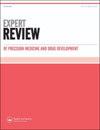Guiding treatment selection with immunotherapy compared to targeted therapy agents in patients with metastatic kidney cancer
IF 1.2
Q4 PHARMACOLOGY & PHARMACY
Expert Review of Precision Medicine and Drug Development
Pub Date : 2022-01-02
DOI:10.1080/23808993.2022.2156786
引用次数: 2
Abstract
ABSTRACT Introduction Kidney cancer treatment has been first revolutionized by the advent of targeted therapies (TKIs and mTOR inhibitors) and then by the approval of immunotherapy and immunocombinations. Whereas immunocombinations represent the most used first-line therapy in intermediate/poor risk patients with clear-cell tumors, cabozantinib and nivolumab are both effective compounds at progression, and till today it is not totally clear what to prefer. No standard treatments are approved in post-second-line setting and in non-clear carcinoma. Areas covered The aim of this review is to summarize the main evidence supporting the use of targeted therapies and immunotherapy, in every setting of clear-cell and non-clear cell renal cell carcinoma, while also providing an insight into promising ongoing and upcoming trials. Expert opinion We speculate on what could help physicians in guiding the therapeutic decision-making process in advanced kidney cancer. International mRCC Database Consortium criteria are still recommended for the choice of primary treatments, despite presenting several limitations in the current immunotherapy-era. Multiple predictors of response to immunotherapy or targeted therapies are emerging but validated biomarkers are awaited. Furthermore, we discuss therapeutic sequences in kidney cancer, guessing how physicians may prefer immunotherapy or TKI as later-line strategies on the basis of previous treatments. Summary The therapeutic armamentarium for advanced clear cell RCC has been revolutionized by the approval of novel immune-based combinations in the last decade. Anti-VEGF TKI as a first-line treatment still represents a valid choice in good risk patients or in subjects who are not able to receive immunocombinations. Several compounds are available in second-line after TKI monotherapy, but no specific indications are available after immunocombinations. Cabozantinib seems to be the option with the strongest rationale and the most widely investigated, but the issue is still open. No standard therapy is approved for non-clear cell patients, although cabozantinib is emerging as the most promising option. Data regarding immunotherapy are still awaited. Prospective and molecular-driven trials enrolling non-clear patients are required. No predictive biomarkers have been validated to guide physician’s treatment choice, toward TKIs or either immunotherapic compounds. Future efforts are necessary to improve the predictive role of novel emerging biomarkers in both clear cell and non-clear cell histologies, such as gene expression profiling and tumor microenvironment features.在转移性肾癌患者中,与靶向治疗药物相比,免疫治疗指导治疗选择
肾癌的治疗首先是通过靶向治疗(TKIs和mTOR抑制剂)的出现而发生革命性的变化,然后是免疫治疗和免疫联合疗法的批准。尽管免疫组合是透明细胞肿瘤中/低风险患者最常用的一线治疗方法,但卡博赞替尼和纳武单抗在进展时都是有效的化合物,直到今天还不完全清楚应该选择哪一种。没有标准的治疗方法被批准用于二线后设置和非透明癌。本综述的目的是总结支持在透明细胞和非透明细胞肾细胞癌的每一种情况下使用靶向治疗和免疫治疗的主要证据,同时也为有希望的正在进行和即将进行的试验提供见解。专家意见我们推测什么可以帮助医生指导晚期肾癌的治疗决策过程。尽管在当前的免疫治疗时代存在一些局限性,但国际mRCC数据库联盟的标准仍然被推荐用于选择初级治疗。对免疫治疗或靶向治疗反应的多种预测因素正在出现,但有待验证的生物标志物。此外,我们讨论了肾癌的治疗顺序,猜测医生如何在先前治疗的基础上选择免疫治疗或TKI作为后期策略。在过去的十年中,由于新的基于免疫的联合疗法的批准,晚期透明细胞RCC的治疗手段发生了革命性的变化。抗vegf TKI作为一线治疗仍然是高风险患者或无法接受免疫联合治疗的有效选择。几种化合物在TKI单药治疗后可用于二线,但免疫联合治疗后没有特定适应症。卡博赞替尼(Cabozantinib)似乎是最具合理性和最广泛研究的选择,但问题仍未解决。尽管卡博赞替尼正在成为最有希望的选择,但目前尚无标准疗法被批准用于非透明细胞患者。有关免疫治疗的数据仍在等待中。需要前瞻性和分子驱动的试验,纳入不明确的患者。目前还没有经过验证的预测性生物标志物来指导医生对TKIs或免疫治疗化合物的治疗选择。未来需要努力提高新型生物标志物在透明细胞和非透明细胞组织学中的预测作用,如基因表达谱和肿瘤微环境特征。
本文章由计算机程序翻译,如有差异,请以英文原文为准。
求助全文
约1分钟内获得全文
求助全文
来源期刊

Expert Review of Precision Medicine and Drug Development
PHARMACOLOGY & PHARMACY-
CiteScore
2.30
自引率
0.00%
发文量
9
期刊介绍:
Expert Review of Precision Medicine and Drug Development publishes primarily review articles covering the development and clinical application of medicine to be used in a personalized therapy setting; in addition, the journal also publishes original research and commentary-style articles. In an era where medicine is recognizing that a one-size-fits-all approach is not always appropriate, it has become necessary to identify patients responsive to treatments and treat patient populations using a tailored approach. Areas covered include: Development and application of drugs targeted to specific genotypes and populations, as well as advanced diagnostic technologies and significant biomarkers that aid in this. Clinical trials and case studies within personalized therapy and drug development. Screening, prediction and prevention of disease, prediction of adverse events, treatment monitoring, effects of metabolomics and microbiomics on treatment. Secondary population research, genome-wide association studies, disease–gene association studies, personal genome technologies. Ethical and cost–benefit issues, the impact to healthcare and business infrastructure, and regulatory issues.
 求助内容:
求助内容: 应助结果提醒方式:
应助结果提醒方式:


